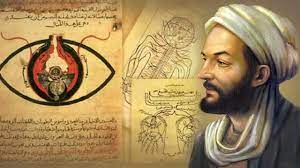Ibn Sina
Ibn Sina, also known as Avicenna in the Western world, was a Persian polymath who made significant contributions to various fields, including medicine, philosophy, astronomy, mathematics, and chemistry. He was born in 980 AD in the city of Afshana, near Bukhara (in present-day Uzbekistan), and he passed away in 1037 AD.Here is a brief biography of Ibn Sina:
Early Life:
Ibn Sina was born into a family of scholars, and he showed exceptional intelligence at an early age. He reportedly had memorized the Quran by the age of 10 and began studying various subjects, including mathematics and logic.
Education:
He received his early education in Bukhara, a center of learning in the Islamic world at that time. Ibn Sina quickly surpassed his teachers in knowledge, and by the age of 16, he had already become a distinguished scholar. He delved into a wide range of subjects, mastering various branches of science and philosophy.
Works and Contributions:
Ibn Sina's most famous work is "The Canon of Medicine" (Al-Qanun fi al-Tibb), a comprehensive medical encyclopedia that became a standard reference in both the Islamic and European worlds for centuries. In this work, he compiled and synthesized medical knowledge from Greek, Roman, Persian, and Indian sources.
In addition to medicine, Ibn Sina made significant contributions to philosophy. His philosophical masterpiece, "Kitab al-Shifa" (The Book of Healing), covered topics such as metaphysics, logic, psychology, and ethics. He also wrote extensively on astronomy, mathematics, and chemistry.
Travels:
Ibn Sina's life was marked by travels to various cities, including Gorgan, Ray, Isfahan, Hamadan, and others, where he served as a physician and adviser to different rulers. His experiences in various regions influenced his understanding of different cultures and traditions.
Legacy:
Ibn Sina's works had a profound impact on both the Islamic and Western intellectual traditions. His writings were translated into Latin during the Middle Ages, and he became known in Europe as Avicenna. His contributions to medicine, particularly in the field of pharmacology and anatomy, continued to be influential for centuries.
Death:
Ibn Sina passed away in 1037 at the age of 57. Despite facing political upheavals during his lifetime, his intellectual legacy endured, and his works continued to shape the course of scientific and philosophical thought for centuries to come.
Ibn Sina's life and contributions highlight the rich intellectual tradition of the Islamic Golden Age and the interconnectedness of knowledge across different cultures and civilizations.





0 Comments